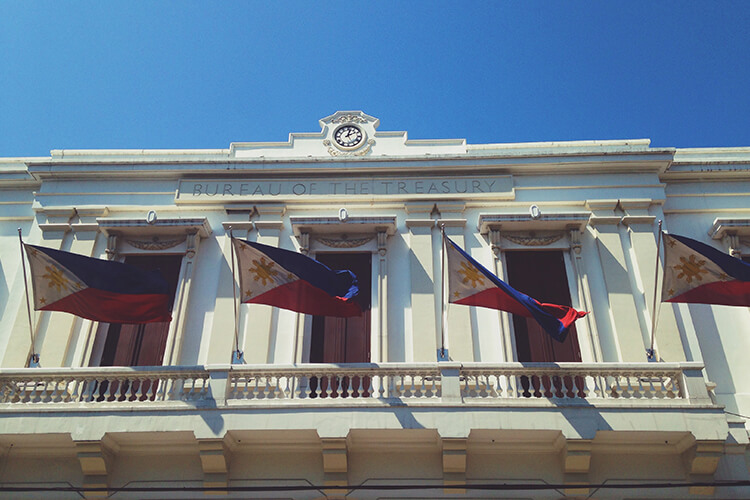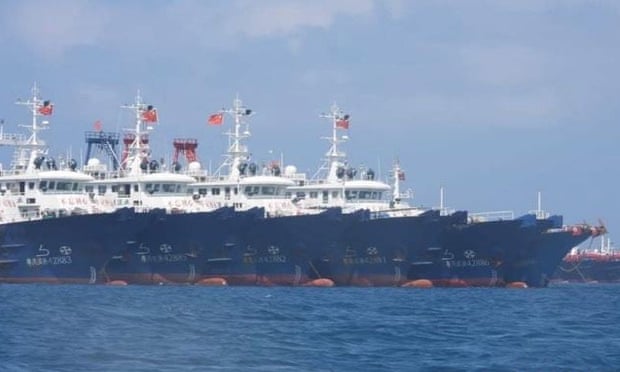
The celebration of June 12 as the anniversary of the Philippine Independence is known to be anchored in the hard earned freedom fought by Filipino revolutionaries against Spain. For more than three centuries, the Spanish empire colonized the country and brought enormous harm and sufferings to the Filipino people. Spaniards possessed and exploited the lands through forced labor and they oppressed and practically enslaved the Filipinos. There were frequent revolts and other form of resistance during the 300 years of cruel colonial rule; and the establishment of a revolutionary society propelled a full blown revolution that began in 1896. By June 1898, the revolutionaries gained control of nearly all of the Philippines. Emilio Aguinaldo as the leader of the revolutionary government proclaimed June 12, 1898 as the day of independence from Spain’s colonial rule. However, neither Spain nor the United States recognized the proclamation.
The successful revolution waged by the KKK (Kataastaasang Kagalanggalangang Katipunan ng mga Anak ng Bayan or Supreme and Venerable Association of the Children of the Nation) was short lived as the United States occupied the archipelago via the so called 1898 Treaty of Paris. In this treaty, the Spanish government ceded (to be read as “not accepting defeat from the non-white Filipinos”) or relinquished all claim of sovereignty over the Philippines to the United States for a compensation of $20 million from the United States to Spain.
However, the Philippine Revolutionary Government did not recognize the treaty and continued its struggle for independence. The Philippine-American war that ensued was bloody and violent. One of the bloodiest events during the war was the so-called the Balangiga (a town in Samar) Massacre of September 28, 1901. As a retaliation to an earlier attack from the Balangiga men who came to defend the woman allegedly molested by two American soldiers, General Jacob H. Smith of the United States Army ordered his soldiers to “kill everyone over the age of 10” and make the island “a howling wilderness”. Some historical sources estimated about 2,500 were killed during the duration of the massacre on top of the burning and looting of the village.
The American soldiers violently suppresed the Filipino resistance in the next several years of the war. Hence, the Philippines once again was conquered by a new empire, the United States of America. For almost five decades, the Americans took physical control of the Philippines, plundered the natural resources, among others, and cultivated local elite leaders who willingly protected their interests post the colonial rule.
On July 4, 1946, the United States of America granted independence to the Philippines in accordance with the Philippine Independence Act (more popularly known as the “Tydings–McDuffie Act”). From 1946 to 1962, Filipinos celebrated July 4th as Philippine Indepence day. In March 1962 President Diosdado Macapagal, however, issued a proclamation which declared June 12 a special public holiday in commemoration of the Filipino people’s declaration of their inherent and inalienable right to freedom and independence.
Independence day reflections
Celebrating the Philippine independence day brings memories of the courage of the Filipino people, who despite all odds fought valiantly the strong nations/empires (Spain, Japan, and United States of America) which trampled on the right of the Philippines for self-determination.
Today, the Philippines and the United States maintain many of the colonial relationships that should have been severed if true independence was earned and fought for by the Filipinos. One manifestation of the colonial relationship is the Philippines-United States Visiting Forces Agreement (VFA) which allows the U.S. military forces visiting the Philippines. It also allows the U.S. government to retain jurisdiction over U.S. military personnel accused of committing crimes in the Philippines. Supplemental to this VFA is the Enhanced Defense Cooperation Agreement which allows the U.S. to rotate troops into the Philippines for extended stays and allows the United States to build and operate facilities on Philippine bases for both American and Philippine forces.
These military agreements play an important part in dealing with the continuing Chinese intrusions in the West Philippine Seas (WPS). There is a presumption that the US is committed to defend the Philippines if attacked by the Chinese naval forces. The intensification of competing military powers in the region, however, is scary as it could further destabilize the region. Therefore, an immediate demilitarization of the South China Sea becomes more urgent in preventing a major confrontation in the area.

It is just expected that Filipinos will continue to interrogate the true meaning of Philippine independence. Many find the intrusions of the Chinese vessels and warships in West Philippine Seas as violations of the sovereign rights of the Philippines since the Permanent Court of Arbitration in The Hague unanimously ruled in favor of the country and rejected China’s sweeping claims over virtually the entire sea areas falling within the “nine-dash line.” This is another image of a superpower nation bullying the Filipino fishermen and it is causing “severe harm” to the marine environment because of its land reclamations. Will Filipinos fight again another strong nation trying to seize control of the Philippines’ exclusive economic zone?
Indeed, many more questions about Philippine independence will come out considering the images of the colonial past appear in the daily life of the Filipinos – from foreign superpowers destabilizing the South China Sea region to a government oppressing its own people like the state security forces killing lawyers, journalists, dissenters, and defenders of human rights. Jimmy P. Reyes captures some of the philosophical questions in his poem “MABUHAY ANG KALAYAAN O KASARINLAN?”
In addition, Laban ng Masa, a Philippine national mass movement, offers its perspective on how the various countries involved in the WPS should act responsibly in its statement, “Both Superpowers are guilty of destablilizing the region, so why target only one?”
Are the Filipinos really free and independent?




Thanks, Jerry and Yoly, for this very enlightening and well-documented piece. I’ve always felt the diminishing appreciation by present-day US of the role the Philippines played during WWII. Filipino soldiers fought with the US as citizens of an American commonwealth, only to be denied of benefits promised by Pres. Roosevelt when Congress passed the Rescission Act (1946). This effectively annulled such benefits because of “concerns over its projected price tag of upwards of $3 billion.” (ref: https://history.com/news/filipino-americans-veterans-day). The one-time lump sum payments given Filipino veterans later in 2009 will never be commensurate to the war sacrifices and anguish of a long wait for benefits. I think China has seized this situation (an apparent neglect by the U.S. of the Philippines) with offers of economic assistance which Pres. Duterte has paid obeisance to with open arms. But this has effectively opened avenues of incursion into the sovereignty of the Philippines which is now slowly but surely happening.
Connie, thanks for your encouraging words. Indeed, betraying one’s promise is a feature of the power of US imperialism. The one-time lump-sum payment came too late and too small for many Filipino WWII veterans (FilVets) who were already in their sunset years. The widows and children of our FilVets got nothing. There was definitely a blatant inequality in and out of the battlefield. During the war, our FilVets received only 50% of what the US soldiers were paid, and after the war, they were denied of their veterans’ benefits. Nevertheless, our FilVets maintained their courage and gallantry in their seven decades of struggle correcting a major historical injustice inflicted to them by the U.S. government. What seems consistent with our history of struggle for independence is our people’s capacity to organize and fight for their rights. They will surely find ways to protect the sovereign rights of the Philippines over its exclusive economic zone in the South China Sea and to make President Duterte pay for his obeisance to China.
Thought-provoking article!
Rey, thanks for finding the article thought-provoking.
We shall overcome!
Together with the people, we shall overcome!
Congratulations Jerry, for this journalistic masterpiece with brilliant analyses of our continuing struggles and where we are now, though yearly we commemorate our independence from oppression of foreign powers.
Truly, on Independence Day, we celebrate the lives of our national heroes, salute their integrity and valor, honor them with gratitude for that precious gift of freedom and democracy.
The challenge is on our shoulders and the next generations of Filipinos to protect our rights and country.
As we continue the fight, I thank you Jerry for all your efforts, although in foreign land now, you shine like a beacon of light and hope, protecting the rights of Fil-Ams and Veterans, and preserving our cultural heritage through education, advocacy and journalistic works.
Carry on for the love of our country and our people.
Cora, thanks for your kind words. Yes, during our independence day celebration, it is just appropriate to recognize the courage and struggle of our ancestors who valiantly fought for our independence from foreign colonizers. At the same time, we should also take the time to reflect about the real status of our country’s capacity to stand on its own. Our history tells us that we have to protect our own interest first as these superpowers have their own interests to pursue. Hence, we should always be vigilant in protecting our country and our right for self determination.
I echo your call to link arms with the next generations of Filipinos in the struggle for genuine independence in the most creative and transformative ways. Take care.